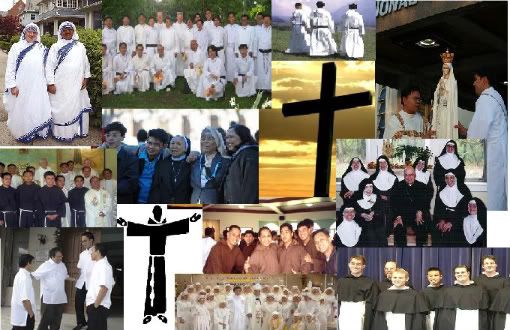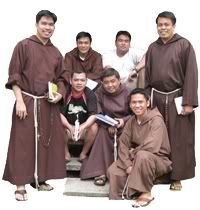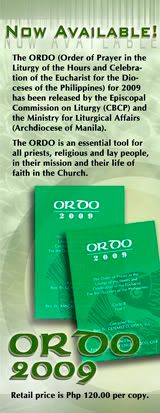Trying a Vocation
Spiritual writers tell us the evil spirit strives in every possible way to hinder all the good he can. If he cannot turn one away completely from the determination of giving oneself to God, he will work, might and main, to defer the moment as long as possible, knowing that a person in the world is constantly exposed to the danger of losing both the grace of God and “the pearl of great price,” his vocation. He knows that until the doors of the monastery have closed behind the young Levite he has every chance of snatching away that treasure. He will lay traps and pitfalls, stir up doubts and fears; he will make the attractions of a life of pleasure seem almost irresistible, causing the bravest heart to waver: “I never realized how dear the world to me until I had to leave it” has been the agonizing cry of many.
Under one pretext or another he induces them to put off their generous resolution from day to day. “O Lord,” exclaims St. Augustine, “I said I will come presently; wait a moment; but this presently never came, and this moment did not end. I always resolved to give myself to You on the morrow, and never immediately.”
How fatal this delay in responding to the call of God has been those can best tell whom age or altered circumstances have hindered from carrying out their first intention.
If the vocation is doubtful, there is need of deliberation, and it must be serious, for hastiness and want of reflection would be unpardonable in such a matter; but so enormous are the advantages to be reaped from a life devoted to God’s service, it would be a far greater calamity to miss a vocation through excessive prudence than to mistake a passing thought for the Master’s call.
It is well to remember that a person who felt he had no vocation would not sin by embracing the religious state, provided he had the intention of fulfilling all its obligations and serving God to the best of his ability. For, in the opinion of the Angelic Doctor, God will not refuse the special graces, necessary for such a life, to one who sincerely desires to promote His glory.
Our Lord tells us to learn a lesson from “the children of this world, who are wiser in their generation”; there is no hesitation about accepting a tempting offer of marriage, which binds one, perhaps to an unsuitable partner, for life; it is worldly wisdom not to delay about such a step when there is a chance of being well settled; and yet St. Ignatius teaches that there is more need for deliberation about remaining in the world than for leaving it. He says: “If a person thinks of embracing a secular life, he should ask and desire more evident signs that God calls him to a secular life than if there were question of embracing the Evangelical Counsels. Our Lord Himself has exhorted us to embrace His Counsels, and, on the other hand, He has laid before us the great dangers of a secular life ; so that, if we rightly conclude, revelations and extraordinary tokens of His will are more necessary for a man entering upon a life in the world than for one entering the religious state.”
Endless harm has been done by well-meaning people, who, under pretext of “trying a vocation”, keep their children from entering a religious house for years.
They urge that getting “to know the world” will develop their faculties and enable them to understand their own mind better; that such a process will broaden their views and help them to judge things at their proper value; finally, that a vocation which cannot stand such a trial, the buffeting of dangerous temptations, and the seductive allurements of worldly pleasure, to which it has been unnecessarily exposed, is no vocation and had far better be abandoned.
“Is the world the place for testing a vocation?” asks St. Vincent de Paul. “Let the soul hasten as fast as possible to secure asylum.” The Church, realizing well the necessity of such a trial, prescribes at least a year of probation in every novitiate before admitting candidates to the religious profession. There, safe from the contagious atmosphere of a corrupt world, with abundant time for prayer and thought, with liberty to remain or leave at will, each one can test for himself the sincerity of the desire he felt to abandon all things and follow Christ, before he binds himself irrevocably by his vows.
“One could not give a more pernicious counsel than this,” writes Father Lessius. “What is it in reality except the desire to extinguish the interior spirit, under the pretext of a trial, and to expose to the tempest of temptation him who was preparing to gain the port of safety?
“If a gardener were to plant a precious seed, requiring great care, in stony ground, covered with thorns ; if he exposed it to the rays of the sun and every change of climate to try would it grow in that unfavourable spot, who would not look upon him as a fool? Those who advise people called to religious life to remain, for a while, in the world have even less sense. A vocation is a divine fruit for eternal life. It is planted in the human heart, a soil little suited to its nature, and requires great care and attention. Watch must be kept that the birds of the air, the demons, do not carry it away; that thorns, the concupiscences and solicitudes of the world, do not choke it; that men with their false maxims should not trample it under foot. Whosoever wishes to preserve and see grow in his heart the seed which the Divine Sower has cast there, ought to fly from the world and reach a safe refuge as soon as possible.”








